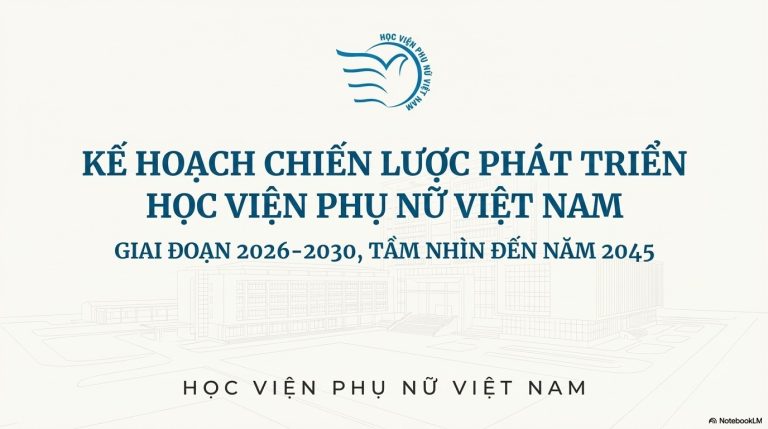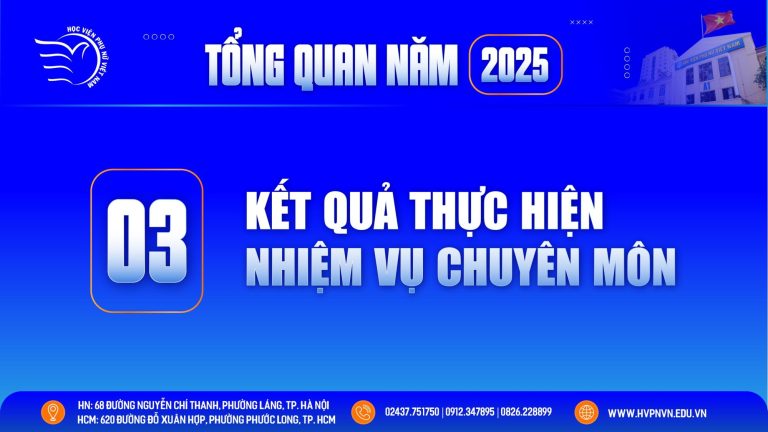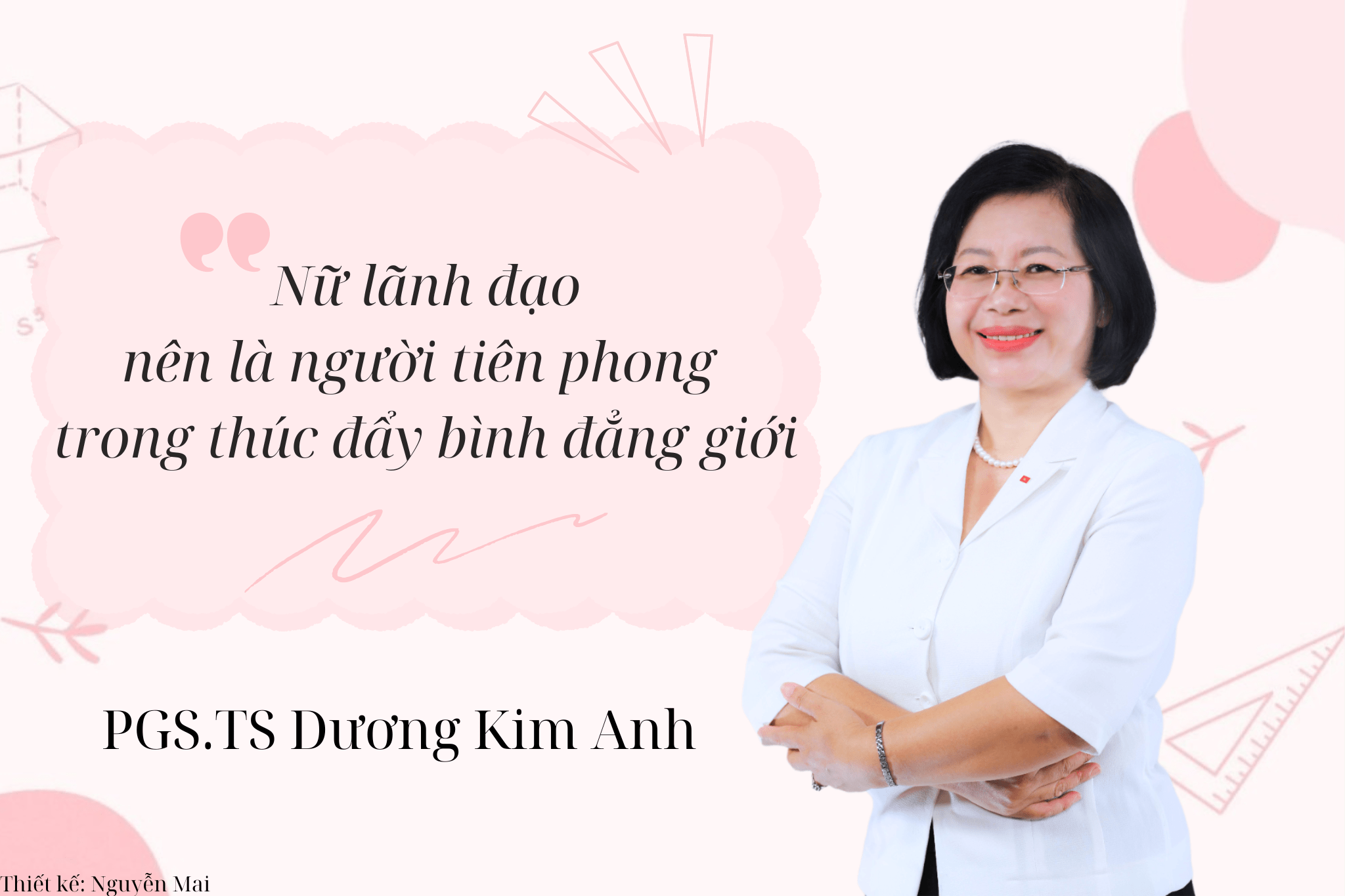
Decision No. 2282/QD-TTg dated December 31, 2020 of the Prime Minister approving the Program on Enhancing Women’s Equal Participation in Leadership and Management Positions at All Levels of Policy Making for the 2021-2030 period sets the target of reaching 60% by 2025 and 75% by 2030 of State management agencies and local authorities at all levels with key female leaders; the proportion of female cadres in the planning of management and leadership positions at all levels will reach at least 40% by 2025 and 50% by 2030.
The above target has shown the important role and position of women in society, thereby promoting gender equality, while creating favorable conditions for women to improve their qualifications, comprehensively develop their capacity, and actively contribute to the cause of national construction and development.
In the education sector, female leaders have made many important contributions, especially at the higher education level. On the occasion of the 115th anniversary of International Women’s Day (March 8, 1910 – March 8, 2025), reporters from the Vietnam Education E-Magazine had a conversation with Assoc.Prof. Dr. DUONG Kim Anh – Vice President of Vietnam Women’s Academy (VWA) to look at the important role of gender equality in education, as well as the qualities required of a female leader in a higher education institution.
Gender Equality in Education matters
Sharing with reporters, Ms. Kim Anh expressed that gender equality in education is extremely important, not only helping to promote the personal development of each person but also contributing to the sustainable development of society.
“The policies of the Party and Government on women’s work and gender equality have had positive impacts on the education sector, demonstrated through policies and directives to create a fair and equal learning environment for both men and women,” Ms. Kim Anh shared.
In the field of education, gender equality plays an important role that is assessed based on many different aspects.
First of all, in terms of legal policies, according to Ms. Kim Anh, the Law on Gender Equality, the National Strategy on Gender Equality for the 2021-2030 period and directives of the Government, the Ministry of Education and Training, etc. affirm the guarantee of equal rights and learning opportunities between men and women. In addition, the Government also promotes educational programs to raise awareness of gender equality in the community.
In addition, the education sector has a large participation of women. Women account for a high proportion of teachers and lecturers. This not only helps create a multi-faceted educational environment, but also promotes the active participation of women in the education sector.
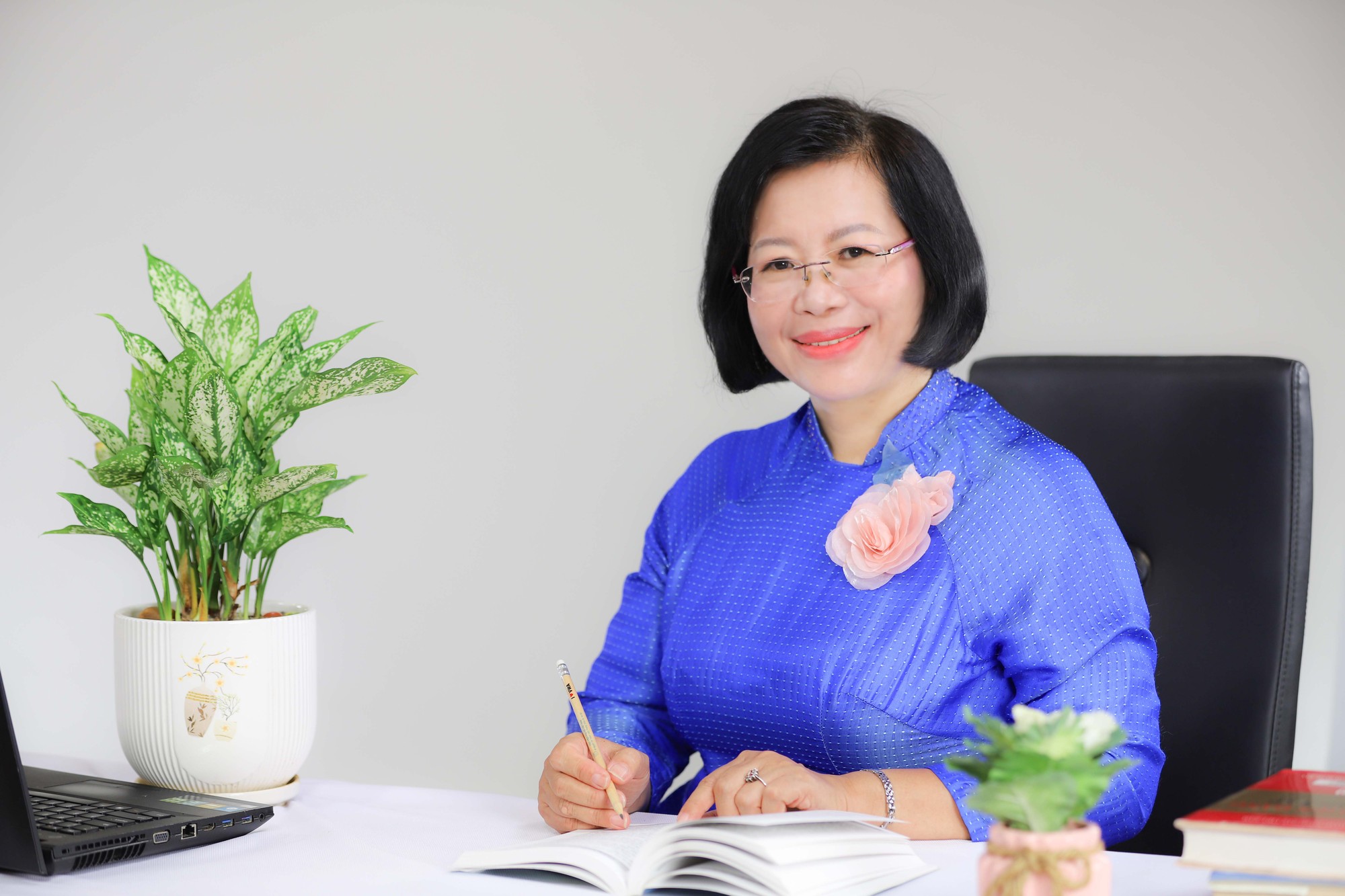
Not to mention, it is to reduce gender bias in the education sector. Ms. Kim Anh believes that education is currently moving towards changing traditional concepts, protecting the rights of female students, and encouraging them to participate in the fields of science, technology, engineering, and mathematics (STEM) – which are considered “fields for males”.
In addition, education has created favorable conditions for the development of women. Specifically, training and skills development programs for women, especially women in remote areas, have helped improve women’s educational level and professional capacity. This reality not only brings benefits to women themselves but also contributes to promoting the socio-economic development of the country.
However, Ms. Kim Anh believes that there are still many challenges that need to be addressed related to gender equality, especially the gender gap in digital technology, in the field of STEM. School violence and bullying still exist.
Female leaders are the ones who lead, inspire and promote sustainable development.
According to the reporter’s research, up to now, Ms. Kim Anh has worked in the education sector for many years. The role model that has had a great impact on her in the teaching profession is Assoc. Prof. Dr. Thanh Dam TRUONG – a scholar, former lecturer at the International Institute for Social Studies – ISS (Erasmus University Rotterdam, Netherlands).
Assoc. Prof. Dr. Thanh Dam TRUONG is a leading expert in the field of gender and development studies and has strongly inspired Ms. Kim Anh in her career development. She is not only a dedicated lecturer but also an in-depth research scientist, making many marks in academia.
“What I admire most about Assoc. Prof. Dr. Thanh Dam TRUONG is her perseverance, passion for research and dedication to her work. She always encourages and opens up research ideas for students, suggests approaches, promotes creativity and seeks new solutions to solve gender and social issues.
“It is her dedication and profound lessons that have inspired me to stick with the education sector in general and Gender and Development in particular. I realize that gender and development is not only an academic field but also highly practical, has a profound impact on society, helping to build a more equitable and civilized society,” Assoc. Prof. Dr. DUONG Kim Anh confided.
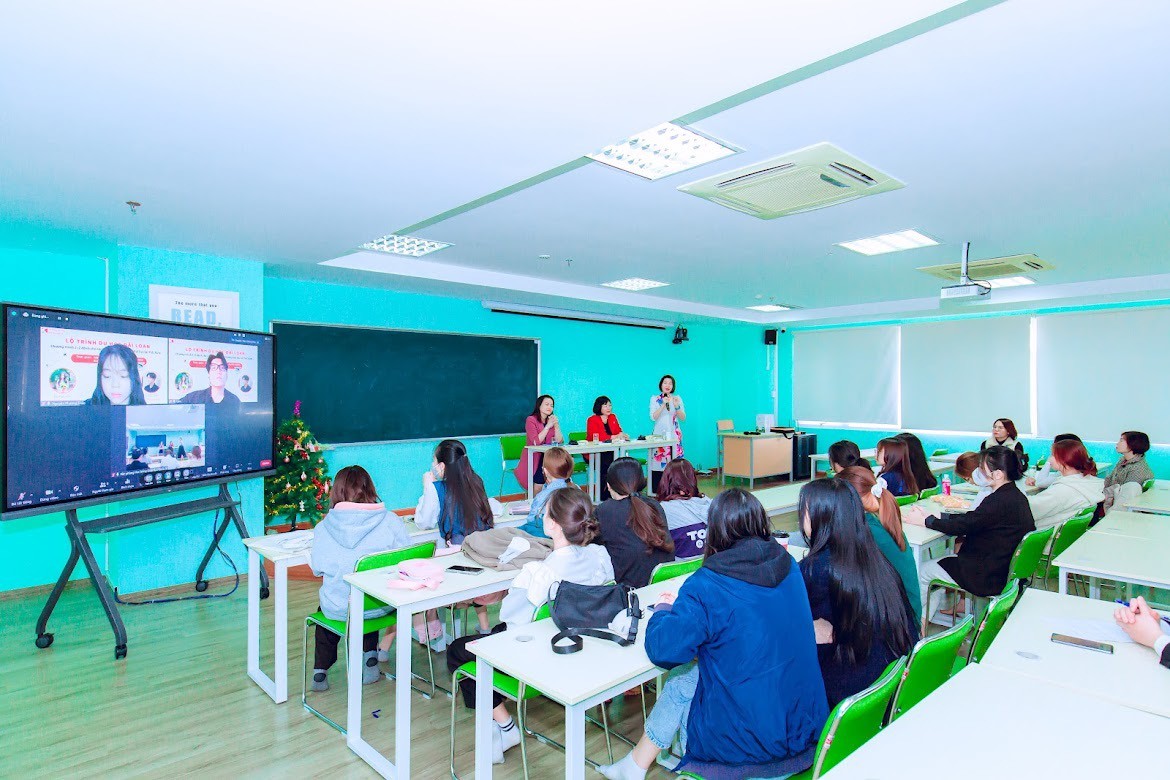
In fact, gender differences are evident in all areas of social life, and in leadership and management. Ms. Kim Anh believes that female leaders face unique challenges that men rarely encounter, such as pressure from social expectations, gender discrimination or lack of leadership role models – especially when the proportion of female leaders is limited in all areas, especially in higher education. However, with support from family and colleagues, female leaders can learn to balance work and family, share housework and know how to manage time reasonably. This is still difficult for many women, but it is also an opportunity for them to develop strong leadership skills, affirm their professional reputation and build a happy family.
“For me and many other female leaders, balancing life and work is probably not without its difficulties, especially in the field of higher education, where female leaders are required to demonstrate their capacity and intelligence in their expertise and leadership and management to meet the increasingly high demands of society and their profession. On the other hand, women must care about developing and taking care of their families and children. Therefore, this is truly a “battle”, requiring female leaders to be calm and know how to cope with the pressures of life and work. Personally, I choose to relax through personal hobbies such as writing, poetry, taking care of plants, and relaxing with family and close friends,” Ms. Kim Anh shared.
From her own story and practical experiences, discussing some qualities that every female leader in an educational institution, especially in higher education, Assoc. Prof. Dr. DUONG Kim Anh – Vice President of VWA commented: “Female leaders of each higher education institution need to have many qualities to be able to lead, inspire and promote sustainable development”.
According to Ms. Kim Anh, female leaders need to be able to perceive and orient the future of the educational institution, develop long-term strategies and development plans in line with social needs and global trends; have the ability to manage finances and allocate resources effectively; be calm and decisive.
Besides, female leaders need to be able to make accurate and timely decisions in specific situations based on clear, scientific analysis.
Additionally, female leaders should be pioneers in promoting gender equality, creating equal opportunities for learners, and building a diverse and inclusive learning and working environment.
Ms. Kim Anh believes that professional ethics are very important for leaders in the education sector. Therefore, female leaders need to uphold ethical values and responsibility in all their decisions and actions, thereby building trust and respect from the community.
One of the indispensable skills for female leaders is communication – the key to building good relationships with lecturers, students, colleagues and stakeholders. This will greatly help leaders in clearly communicating goals and policies and creating consensus within the school community.
More specifically, in higher education institutions, female leaders need to listen and empathize, have the ability to build teams, encourage creativity and innovation in teaching and scientific research, connect and serve the community.
Strengthening propaganda and education on gender equality
In building an equal and sustainable society, moral education for female students is extremely important. Sharing about this, Ms. Kim Anh said that higher education institutions need to focus on integrating gender-related curriculum into the main curriculum as well as extracurricular activities so that students are clearly aware of their role in promoting gender equality and social progress.
Higher education institutions need to create an equal learning environment, regardless of gender, encourage female students to participate in leadership activities, start-up activities, and participate in studying professions with few women, helping them to rise up and assert their voice, representative role, and right to make decisions.
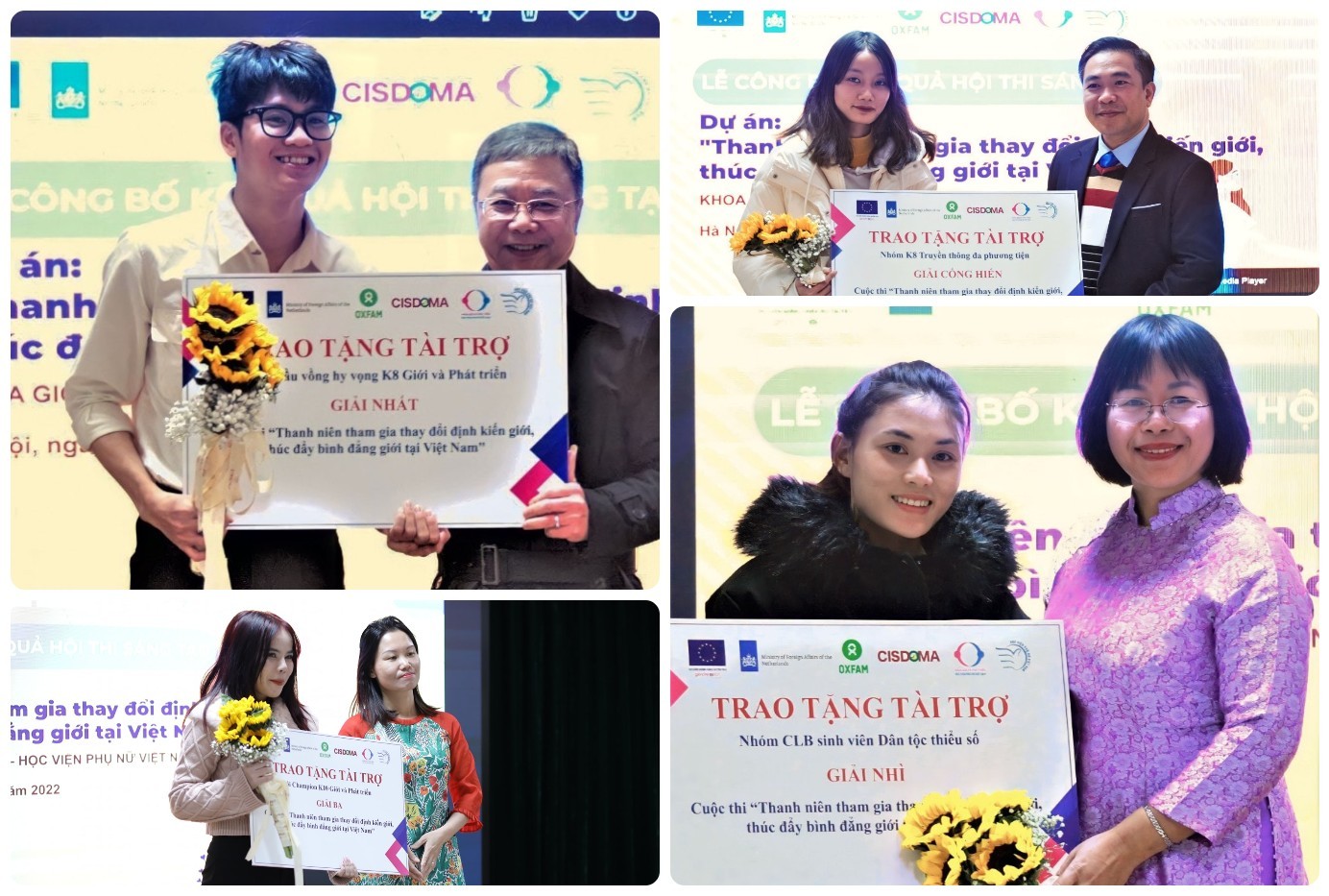
Not to mention, higher education institutions need to strengthen propaganda and education on gender equality, through integrating gender into training programs, organizing seminars and workshops on gender, providing students with knowledge and skills to identify and resolve gender inequalities.
Besides, higher education institutions must also focus on educating female students about moral qualities, developing qualities such as confidence, self-respect, honesty, and responsibility – “These are not only traditional cultural values but also the foundation to help women develop strongly and contribute effectively to society” – Ms. Kim Anh shared.
Furthermore, higher education institutions need to encourage the participation of female students in leadership activities, create opportunities for female students to participate in clubs, organize activities, and implement community projects to develop leadership ability, confidence, and practice decision-making skills.
Moreover, according to Ms. Kim Anh, higher education institutions need to organize training programs on life skills, leadership, communication and problem solving for female students. This help female students develop personal qualities, become more confident in situations and careers, while maintaining moral qualities and an honest and kind lifestyle. These institutions should also coordinate with businesses, organizations and the community to conduct communication to raise awareness about gender.
Regarding the organization of practical activities to raise awareness about gender and promote gender equality, according to research, VWA is a leading higher education institution in these activities.
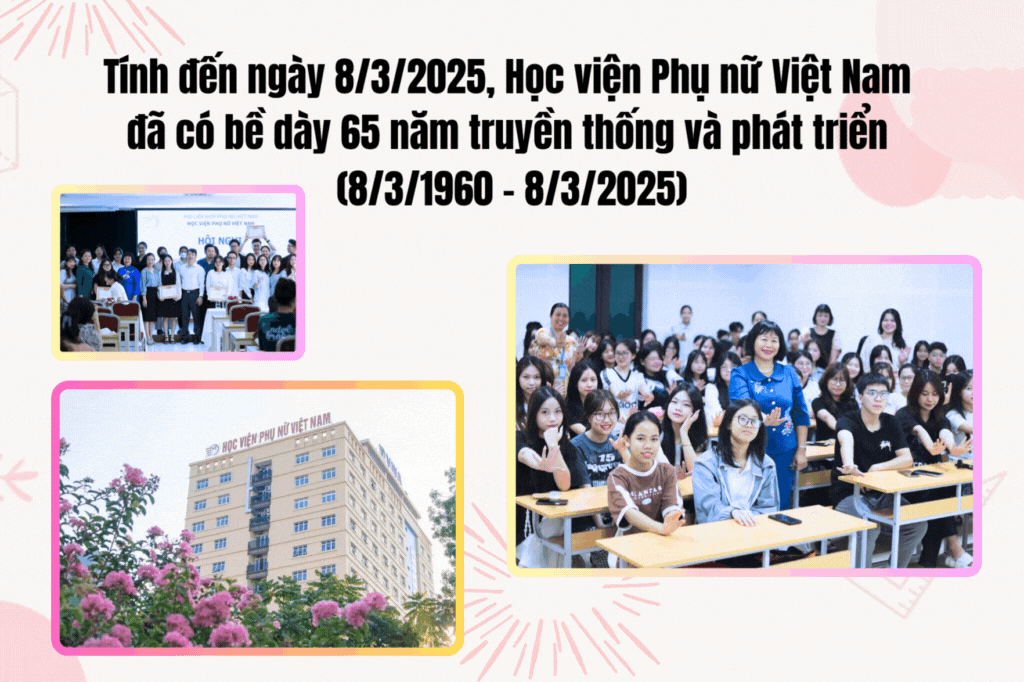
VWA has training and development programs on gender equality; implements many programs, projects, and research topics on women, gender and development, thereby making many important policy recommendations. Every year, the Academy organizes international and national scientific conferences on gender, women and development. The Academy also trains and develops cadres for female cadres from Laos, Cambodia, female cadres of ministries and branches, and cadres of the Vietnam Women’s Union at all levels.
Sharing with reporters, Assoc. Prof. Dr. DUONG Kim Anh said that VWA is the only educational institution in the country that currently trains bachelors in Gender & Development, providing human resources on gender for society. In addition to the Gender & Development major, which trains in-depth knowledge and skills on gender and development, other undergraduate majors of the Academy have subjects on gender such as Gender in Economics and Management (Economics, Business Administration, Economic Law), Gender in Public Policy (Law), Gender in Science and Technology (Information Technology), Gender in Communications (Multimedia Communications), etc. In addition, lecturers and students of the Academy conduct many training and communication sessions on gender equality, raising gender awareness in the community.
VWA implements and participates in many gender programs and projects such as the Colombo Project to enhance capacity in the Gender & Development sector, the Youth Project to participate in changing gender stereotypes and promoting gender equality in Vietnam, the Project to enhance the comprehensive participation of state officials in the Sustainable Development Goals (SDGs); coordinates with agencies and units to organize gender initiative competitions for students. These projects help improve the capacity of lecturers, students and trainees of the Academy, while contributing to raising community awareness.
“With the educational philosophy of education with Comprehensiveness, Quality and Equality, VWA always strives to provide students and trainees with a comprehensive educational environment in terms of knowledge, skills as well as training in solidarity, responsibility and creativity in the learning process so that students and trainees can best develop their potential and strengths”, Assoc. Prof. Dr. DUONG Kim Anh shared.
In the 2025-2026 academic year, Vietnam Women’s Academy will have enrolled 120 undergraduate students in Gender & Development (major code 7310399, school code HPN) and 11 other undergraduate majors.
The Academy also offers master’s and doctoral degrees – most recently a master’s degree in Clinical Psychology.

 Tiếng Việt
Tiếng Việt



